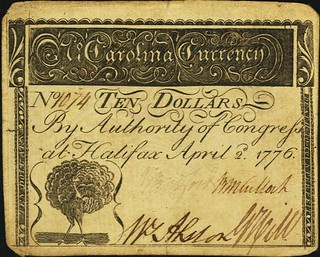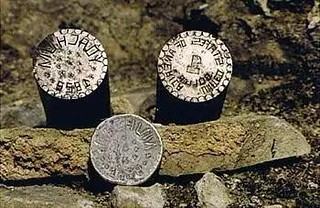
PREV ARTICLE
NEXT ARTICLE
FULL ISSUE
PREV FULL ISSUE
NOTES FROM E-SYLUM READERS: OCTOBER 18, 2015More on A. J. Fink
Thanks for publishing the bio of Alvin Fink. I really do not know too much about him, but anything that I ever read about him was negative. Most collectors had a low opinion of him. I don't think he got too much repeat business. He finally tried to join the American Numismatic Association in 1948, but then his name was not listed in December 1948 membership directory; it looks suspiciously like objections were raised against his membership. I wish that I could state were I read about him, but it escapes my memory. To read the earlier E-Sylum article, see:
Mark Salton's “Glossary”
"Most compilers of glossaries rely heavily on Frey (Albert Romer). His 1917 Dictionary of Numismatic Names contains 4,111 entries with heavy emphasis on coin names and denominations, When Spink reprinted this in 1973 they added a section of 560 coin terms in five languages by Mark Salton." George Kolbe writes: Not quite so. Mark Salton's “Glossary” was first included in the 1947 Barnes & Noble edition. To read the earlier E-Sylum article, see:
Peacock or Turkey?
Regarding the allusion to and illustration of Lot 18947: North Carolina April 2, 1776 $10 Peacock from the Newman collection, given the date, place and circumstances surrounding the issue of this banknote, I suspect the "Peacock" is actually a "Turkey." Even crudely drawn, it looks more like a turkey than a peacock.
Well, a turkey does make more sense in the context of early America. Here's a close-up of the vignette between images of a turkey and
peacock. I would have called it a peacock myself originally, but Don may be right. Where did the peacock appellation come from anyway?
Who was the first cataloger to refer to it that way? -Editor
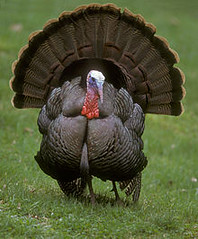 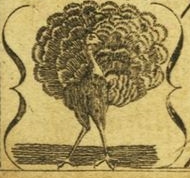 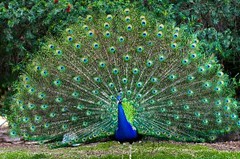
Maureen Levine writes: After comparing the body shapes, we still think it’s a peacock. It is an interesting discussion, and other readers may have a different opinion.
I can agree that the body shape is like a peacock, but the plumage could go either way. Maybe it's a "Teacock"... -Editor
To read the earlier E-Sylum article, see:
Jefferson Davis - His Marque
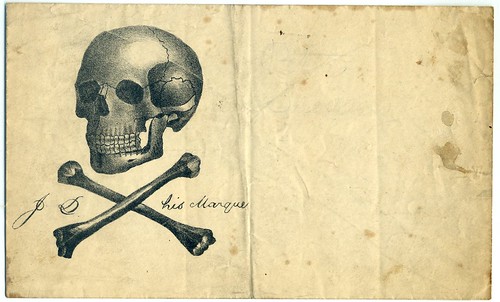
Heather Schena writes: I bought this at a local coin show and am having a hard time finding out much of anything about it. I know it refers to Jefferson Davis and his issuance of letters of marque to Confederate privateers since there are other well documented envelopes from the Civil War era which use the same phrase, but with different images. I am unable to date this cover to the same period – no catalog I’ve found describes this specific design. I’ve read that it is far too large (5.25” x 8.5”) to be from that time and might date to the 1890’s. Davis died in 1889 – maybe this image was used at that time to mock him? If anyone has any insight on the history and purpose of this piece I am interested in hearing it.
It's not numismatic, but we have experts in many areas among our readership. Suggestions, anyone? Thanks. -Editor
More on the Yoachum Dollar
I addressed this subject (definitively, I believe) in my article "The Legend of the Yoachum Dollar," Numismatist, March 1994 (received the Wayte and Olga Raymond Memorial Award and a Third Place Heath Literary Award). I certainly concur that the legend has improved with the retelling and that the account published recently is nonsense. But apparently two members of the Yoachum family did mint their own "silver dollars"--perhaps of base silver, as one account says--from circa 1835-40 through 1845 or 1848. Since early accounts describe them as just like current silver dollars, they must have been copies of Mexican Cap and Rays pesos, the current silver dollar of the period. I proposed Riddell 254, a cast counterfeit dated 1836, as a possible candidate for the Yoachum dollar.
Thanks. I just knew we had more information on this story in our archives, but I couldn't find it last week. Now I know why - the
earlier articles used the 'Yoachum' spelling. See the links below. -Editor
To read the earlier E-Sylum articles, see:
The Obvious Plant
You owe me. You owe me two hours of my life, as I went to the Obvious Plant website at your suggestion and read every single one of his signs, etc. Great stuff! To read the earlier E-Sylum article, see:
A Thank-You For Bill Groom
I’d like to thank Bill Groom for his additional research into the Jesse L. Berch counterstamped coin. He provides fascinating insight Berch’s life and a possible explanation for the existence of this piece. Fun stuff, numismatics is! To read the earlier E-Sylum article, see:
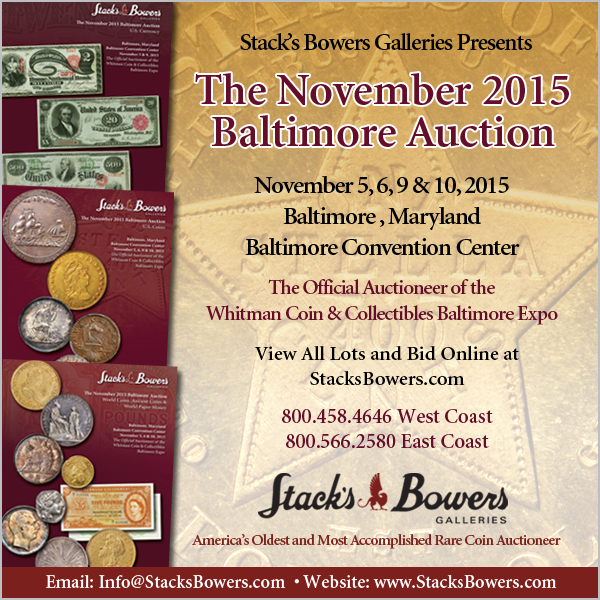
Wayne Homren, Editor The Numismatic Bibliomania Society is a non-profit organization promoting numismatic literature. See our web site at coinbooks.org. To submit items for publication in The E-Sylum, write to the Editor at this address: whomren@gmail.com To subscribe go to: https://my.binhost.com/lists/listinfo/esylum All Rights Reserved. NBS Home Page Contact the NBS webmaster 
|
